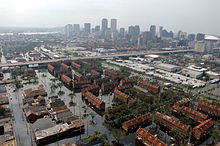Buying life insurance online is easy but this article provides 5 money saving tips that the man in the street would otherwise be unaware of. Essential reading.
More and more people are buying life insurance online and the numbers seem to be doubling every two years. The reasons are clear. Prices are lower on the Internet and life insurance is fundamentally a simple insurance product. Despite the underlying simplicity of life insurance, most web sites channel their online clients through a telephone based help and advice service manned by experienced personnel. They represent your safety net so if a little technical knowledge is called for, help is at hand. But it’s always a good idea to have a few Top Tips in your back pocket when you’re shopping online for life insurance. They’ll help you ask the right questions and find the best policy.
1. Always have your Life Insurance policy “Written in Trust”. This means that in the event of a claim, the money goes directly and immediately to the person(s) you nominate when you first take the policy out. It also avoids all possibility of your estate having to pay Inheritance Tax on the proceeds of your policy and that could represent a 40% tax saving ! All you have to do is tell the online brokerage organising your policy that you want your policy “Written in Trust” and the names of the people who the life insurance company pay in the event of a claim. They will then sort it all out for you. The extra good news is that this service is invariably free of charge. So it’s a win win situation and there aren’t many of those around these days !
2. In the early years a Reviewable Life Insurance Policy will be cheaper but a Guaranteed Policy will work out a better buy in the longer term. With a “Guaranteed Policy” the insurance company guarantees never to increase your policy’s premium. With a “Reviewable Policy” you agree that your insurance company can review the cost of your policy at regular intervals. But don’t be kidded – in our experience a “review” is just another word for a price increase. After all, who’s ever heard of an insurance company passing up a chance to charge you more! The review intervals are usually between 2 to 5 years but this does vary between insurance companies. You will find the details of the review intervals on the documents sent to you before you accept the insurance – these are called The Key Features Documents. So, comparing otherwise like for like policies, in the early years the premiums for a “Reviewable Policy” will undoubtedly be lower than the premiums for a “Guaranteed Policy”. Thereafter, the premiums for a Reviewable Policy increase eventually catching up with and overtaking, the premium for a “Guaranteed Policy”. In our experience, you can expect the monthly premiums for a Reviewable Policy to exceed those of a Guaranteed policy in about 7 to 10 years and then within the following 10 years, more than double again. If your budget is currently tight then by all means choose a Reviewable Policy - after all your salary may increase in coming years and ease the strain. On the other hand, if the premiums for a Guaranteed Policy are affordable, we think they represent your best buy. A footnote. Many insurance companies have stopped offering “Guaranteed” rates for standalone critical illness insurance policies. This because they have experienced much higher claim rates than they initially expected. However, you may still find a Guaranteed life insurance policy that also provides critical illness cover. As we have explained, “Guaranteed” rates are especially good value and if you can get a quote for a Guaranteed life policy that includes critical illness cover, you may have a real bargain.
3. Thinking about a Joint Life Insurance Policy? A Joint Life Insurance policy is usually written on a first death basis. This means that the policy will pay out on the death of the first policyholder, subject to the policy being in force at the time. This leaves the second person uninsured and older. Older people can struggle to get life insurance at an affordable premium, so rather than a Joint Policy consider taking out separate policies now. Overall it will work out a little dearer - but you get twice the cover and double the peace of mind.
4. Taking out a Life Insurance Policy? Now would be an ideal time to include Critical Illness cover. Are you likely to need Critical Illness Insurance in the future? Yes? Then consider adding it now to the life insurance policy you’re arranging. Why? There are three reasons. Firstly, a Life Insurance policy combined with Critical Illness cover will work out significantly cheaper than buying two separate policies. Secondly, as we have already explained in the footnote to Tip 2, you may be able to buy a combined Life and Critical Illness policy with a guaranteed premium. That could be a real bargain. Finally, premiums for critical illness cover increase rapidly as you get older – so the sooner you take it out, the cheaper it will be.
5. Don’t confuse Terminal Illness cover with Critical Illness cover. There’s world of difference between Terminal Illness and Critical Illness cover so it’s important to understand the difference. Terminal Illness cover pays out the insured lump sum if a Medical Doctor diagnoses you with an illness from which the Doctor expects you to die within 12 months. Most good life policies automatically include Terminal Illness cover at no extra cost. It’s basically an early, and welcome policy payout. A Critical Illness policy pays out the insured lump sum if you are diagnosed with one of a wide range chronic illness and there is no life expectancy criteria. Indeed, with many of the insured illnesses you could expect to survive for many years. For example: certain cancers, heart disease, stroke, multiple sclerosis, loss of speech, sight or hearing, onset of Parkinsons or Alzheimers disease, third degree burns etc. Say you were an engineer aged 40 and you lost your sight. A Critical Illness policy would pay out immediately and that money could well be vital in helping you and your family through many difficult financial years ahead. If you just had Terminal Illness cover there’d be no chance of a payout. So as you can see










